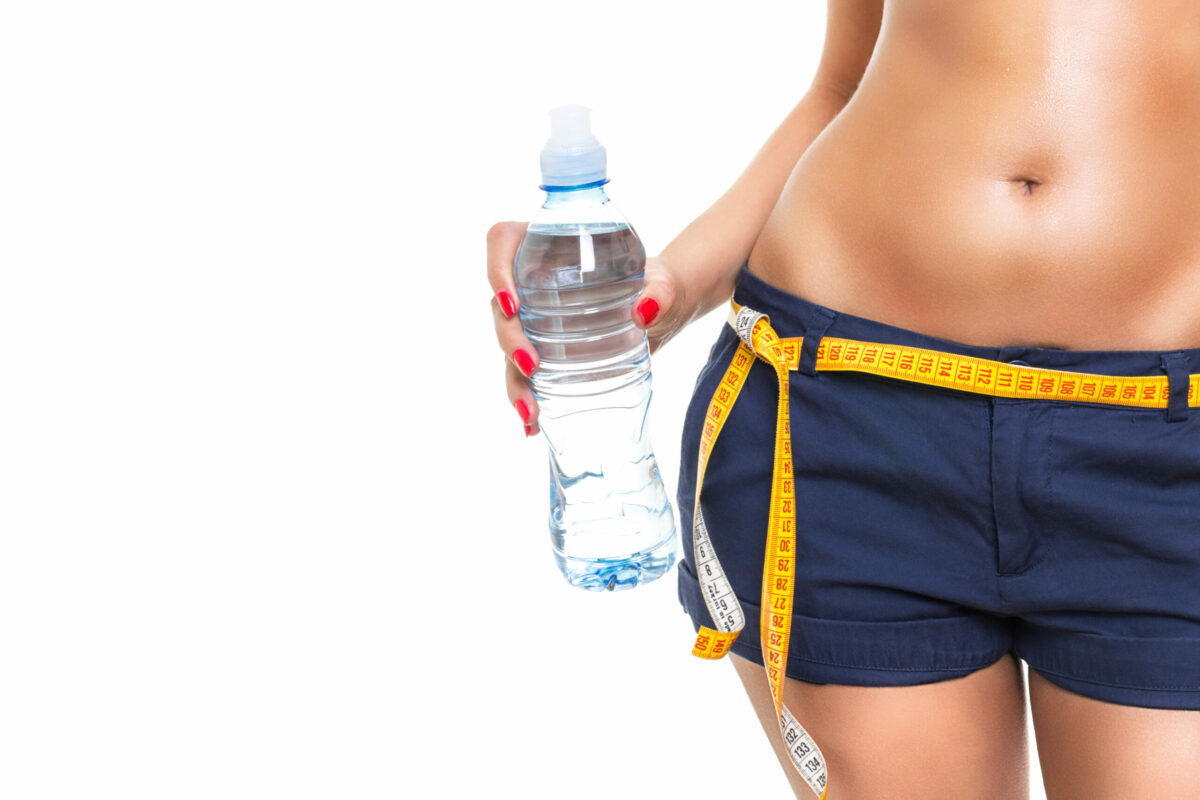Intermittent fasting has emerged as one of the most popular diet patterns today, with millions adopting it to achieve their health and fitness goals. A 2020 International Food Information Council study found that 10% of 1,000 Americans follow this diet. But while intermittent fasting has been widely studied and endorsed by health experts, another form of fasting is gaining traction – water fasting.
However, many questions surround this practice, such as “Can you drink water while fasting?” This comprehensive guide will answer all your questions about water fasting and provide the information you need to decide about this diet.
What is Water Fasting?
Water fasting is a type of fasting where you consume only water for a certain period. During a water fast, you do not eat any food or drink any other liquids except for water. That means no coffee, tea, or juice. Water fasting aims to give your body a break from digesting food, allowing it to focus on healing and repairing itself.
Types of Water Fasting
There are different types of water fasting, including the following:
- Short-term water fasting: This involves fasting for up to 48 hours.
- Traditional water fasting: This involves fasting for several days to a few weeks. It is the most common form of water fasting.
- Dry fasting: This involves abstaining from food and water for a certain period. It is considered to be more extreme than water fasting and should only be done under the supervision of a healthcare professional.
Benefits of Water Fasting

Water fasting has been found to offer several benefits, and below are some of the most notable ones:
- Weight loss: Water fasting can help you lose weight by creating a calorie deficit. However, it is essential to note that weight loss is often temporary and may not be sustainable in the long term.
- Improved insulin sensitivity: Water fasting has been found to improve insulin sensitivity, which can help prevent type 2 diabetes.
- Reduced inflammation: Water fasting can help reduce inflammation in the body, a risk factor for many chronic diseases.
- Improved cognitive function: According to some studies, water fasting may enhance cognitive abilities such as memory and concentration.
- Detoxification: Water fasting allows your body to focus on removing toxins from your body, which can have a positive impact on your overall health.
Can You Drink Water While Water Fasting?
Yes, drinking water is essential during water fasting. Staying hydrated is important because water plays a critical role in the body, including regulating body temperature, flushing out toxins, and transporting nutrients.
During water fasting, your body needs water to support the various bodily functions that continue even when you are not eating. Drinking water can also help curb hunger and reduce the risk of dehydration, which can cause dizziness, headaches, and other symptoms.
The amount of water you need during water fasting varies depending on your body weight and level of physical activity. A general rule of thumb is to drink at least eight glasses of water daily, but some people may need more. Listening to your body and drinking water whenever you feel thirsty is essential.
If you find plain water boring, you can also try herbal tea or infused water. However, it is important to avoid beverages that contain sugar or calories, as they can break your fast.
The Do’s and Don’ts of Water Fasting
Before embarking on water fast, knowing what you should and should not do is important to ensure a safe and successful experience.
Things To Do Before Starting a Water Fast
- Consult with a healthcare professional: If you have any medical conditions or are taking any medications, you must talk to your doctor before starting a water fast. Water fasting is an extreme form of dieting and may not be suitable for everyone.
- Prepare your body: Gradually reduce your food intake in the days leading up to the water fast to minimize potential side effects. Eliminating caffeine, alcohol, and processed foods can also help.
- Stay hydrated: Start hydrating your body a few days before the fast by drinking plenty of water to ensure your body is well hydrated. Doing so also helps prepare your body for the fast.
- Plan your meals: Plan your meals before and after the fast to ensure a smooth transition into and out of the fast. You can focus on whole, nutritious foods to promote health and well-being. Another option is to follow an elimination diet to reduce inflammation and promote better digestion.
Things To Avoid While Water Fasting

- Consuming anything other than water: Water fasting means only drinking water. Avoid other beverages or foods as they can break your fast and affect the benefits. If you prefer alternating periods of eating and fasting, you can try intermittent fasting instead. Intermittent fasting for women over 50 is recommended to ensure safety.
- Overexerting yourself: Avoid excessive physical activity during the fast, as your body will have limited energy reserves, and you do not want to risk fainting or injuring yourself. Instead, focus on light exercises such as walking or yoga to promote health and well-being.
- Taking medications or supplements: Some medicines and supplements require food for proper absorption, so it is essential to consult with a healthcare professional before taking any prescription or supplements during a fast.
Common Mistakes To Avoid During Water Fasting
- Not drinking enough water: Staying hydrated is critical during water fasting. Without adequate water, your body will not function properly, and you may experience fatigue, headaches, dizziness, or other symptoms. So, drink enough water to prevent dehydration and support your bodily functions.
- Breaking the fast too quickly: Gradually reintroduce food to your diet after the fast to avoid digestive issues and sudden weight gain. Instantly eating a large meal after the fast can cause abdominal discomfort, nausea, and vomiting.
- Not listening to your body: Pay attention to your body and stop the fast if you experience any adverse symptoms, such as dizziness or fainting. If you’re a woman in your 50s trying to cut down on calories, you can try the menopause diet 5-Day plan to lose weight. This is much safer than water fasting.
Tips for a Successful Water Fast
Water fasting can be a challenging experience, but with the right preparation and mindset, it can be a transformative and rejuvenating experience. Here are some tips for a successful water fast.
Preparation Tips
- Start small: If you are new to fasting, start with shorter fasts of 24-48 hours to acclimate your body to the process before attempting longer fasts.
- Plan ahead: Prepare for your fast by scheduling it during a time when you can rest and avoid stressful situations. Stock up on essential supplies, such as water and electrolytes, before starting the fast.
- Stay informed: Read up on the benefits and potential risks of water fasting to know what to expect and how to stay safe during the fast.
Coping with Hunger
- Keep yourself occupied: Engage in activities that keep your mind and body busy, such as reading, yoga, or meditation, to distract yourself from hunger pangs.
- Stay hydrated: Drink plenty of water throughout the day to keep your body hydrated and help alleviate hunger pangs.
- Take breaks: Rest whenever you feel tired or overwhelmed. Taking a nap or a short break can help you recharge and refocus.
Coping with Dehydration
- Drink enough water: It is essential to drink enough water to avoid dehydration during the fast. The recommended water intake during fasting is 2-3 liters daily.
- Add electrolytes: Electrolytes such as sodium, potassium, and magnesium are essential for your body’s optimal function. You can add electrolyte supplements or drink water with added electrolytes to your diet to ensure you are getting enough.
Tips for Breaking the Fast

- Start slow: Gradually introduce food back into your diet over several days to allow your body to readjust to digestion.
- Choose the right foods: Start with light, easy-to-digest foods such as fruits, vegetables, and soups. Avoid processed and heavy foods, as they can cause digestive discomfort.
- Listen to your body: Pay attention to how your body reacts to different foods and adjust your diet accordingly.
Risks and Precautions
Water fasting is generally safe for most healthy adults, but there are some risks and precautions to be aware of before starting a water fast.
Risks Associated With Water Fasting
- Dehydration: Water fasting can cause dehydration, which can lead to symptoms such as dizziness, fatigue, and headaches.
- Electrolyte Imbalance: Lack of electrolytes in the body due to water fasting can lead to symptoms such as muscle weakness, cramps, and irregular heartbeat.
- Low Blood Sugar: Prolonged fasting can cause a drop in blood sugar levels, leading to symptoms such as weakness, lightheadedness, and fatigue.
- Impaired Immune Function: Water fasting can weaken the immune system, making the body more vulnerable to infections and illnesses.
- Gastrointestinal Problems: Breaking the fast too quickly or with the wrong types of food can cause digestive issues such as diarrhea and stomach cramps.
Risks Associated With Water Fasting
- Dehydration: Water fasting can cause dehydration, which can lead to symptoms such as dizziness, fatigue, and headaches.
- Electrolyte Imbalance: Lack of electrolytes in the body due to water fasting can lead to muscle weakness, cramps, and irregular heartbeat.
- Low Blood Sugar: Prolonged fasting can cause a drop in blood sugar levels, leading to weakness, lightheadedness, and fatigue.
- Impaired Immune Function: Water fasting can weaken the immune system, making the body more vulnerable to infections and illnesses.
- Gastrointestinal Problems: Breaking the fast too quickly or with the wrong types of food can cause digestive issues such as diarrhea and stomach cramps.
How To Know if Water Fasting Is Right for You
Water fasting is not suitable for everyone, and listening to your body and determining if it is right for you is essential. If you are pregnant or breastfeeding, have a history of disordered eating, or have certain medical conditions such as diabetes or heart disease, it is crucial to speak with a healthcare professional before attempting water fast. If you experience any adverse symptoms, such as extreme fatigue, dizziness, or nausea, you must stop the fast and seek medical attention if necessary.
This article has provided a comprehensive guide to water fasting, including what it is, its types, benefits, risks, and tips for a successful fast. Staying hydrated during water fasting is crucial to avoid dehydration and other associated risks. It is essential to listen to your body and seek medical advice before attempting water fast, especially if you have any underlying health conditions or are new to fasting. This article has provided valuable information to help you make an informed decision about water fasting and achieve your health goals safely and effectively.





